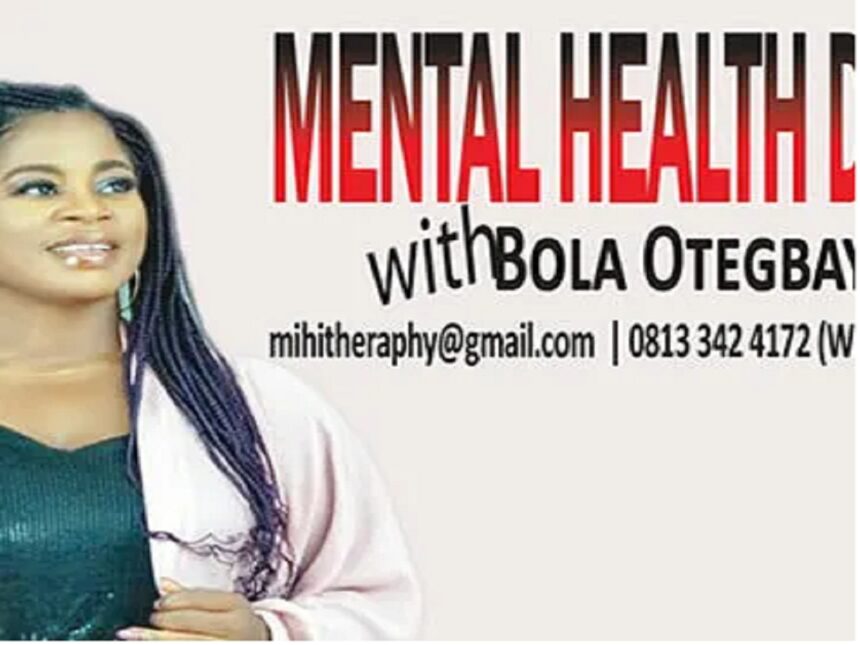Have you ever forgotten where you kept your keys, or walked into a room only to wonder why you were there? For most of us, these are just passing moments. But for someone living with dementia, memory loss goes far beyond forgetfulness it changes daily life, relationships, and independence. Imagine looking at a loved one’s face and not remembering their name, or struggling to find the words for simple things like bread or water. This is the reality of dementia, a condition that silently affects millions of families worldwide. This September, marked globally as Dementia Awareness Month, is a time to pause and reflect, not only on what dementia is, but how we, as individuals and as a society, can respond with knowledge, compassion, and support.
Dementia is not an old age thing. It is true that it is more common among older people, but not all old people have dementia. Growing older comes with some slowing down in memory, but dementia goes far beyond normal forgetfulness. For instance, forgetfulness might look like not remembering where you kept your keys. Dementia, on the other hand, is when someone no longer remembers what a key is for, or how to use it. That difference is what makes dementia so serious and life-disrupting.
Dementia is not a single disease but a syndrome, a collection of symptoms caused by different conditions that damage the brain. It affects memory, thinking, language, judgment, and even behavior. Alzheimer’s disease is the most common type, but there are others such as vascular dementia, Lewy body dementia, and frontotemporal dementia. What all these conditions share is that they interfere with daily life and independence, often in ways that are distressing not just for the person affected but also for their family and caregivers.
When people hear the word dementia, many assume it is just one single condition. In truth, dementia is an umbrella term, it’s like saying “fever” without mentioning whether it is malaria, typhoid, or flu. Different types of dementia affect the brain in different ways, and knowing this helps us understand why symptoms don’t look the same for everyone.
Alzheimer’s disease is the most common form. It usually begins with memory loss, forgetting recent conversations or events, and slowly affects reasoning, judgment, and even personality. Families often describe it as “losing someone twice,” once to memory, and later to deeper changes.
Vascular dementia comes from reduced blood flow to the brain, often after a stroke or a series of small strokes. Unlike Alzheimer’s, the memory loss may not be the first thing you notice. Instead, the person may struggle with planning, decision-making, or slowed thinking.
Lewy body dementia is a little different because it combines memory issues with movement problems, much like Parkinson’s disease. People with this type may also have vivid dreams, act them out in their sleep, or experience visual hallucinations.
Frontotemporal Dementia (FTD) usually appears earlier than other forms, often in people in their 50s or 60s. It doesn’t start with memory loss, but rather with changes in personality and behavior. A normally gentle person may suddenly become rude or impulsive, or lose interest in things they once loved.
Finally, there is mixed dementia, where more than one type occurs together. For example, someone may have both Alzheimer’s and vascular dementia. This overlap can make the symptoms more complex.
When we hear “dementia,” it is easy to wonder why it happens to some people and not to others. The truth is that there isn’t one single cause. Instead, several factors can raise the risk. Age is the strongest risk factor, but it is important to stress again that dementia is not a normal part of aging. Many people live into their 80s and 90s with sharp minds. Genetics can also play a role. For example, some families may carry genes that increase the risk, such as the APOE4 gene in Alzheimer’s disease. APOE stands for apolipoprotein E, a protein that helps carry cholesterol and fats in the blood. It comes in different forms, and one of them is APOE4 which has been linked with a higher risk of Alzheimer’s. But even here, having the gene does not mean a person will certainly develop dementia; it only raises the chances. Many people with APOE4 never develop Alzheimer’s, while some without it may still develop the condition.
Lifestyle is another big factor. Habits like smoking, heavy drinking, lack of physical activity, and unhealthy diets can gradually harm the brain. Poor sleep, especially when chronic, has also been linked to memory decline because it prevents the brain from doing its nightly “cleaning work.” Medical conditions like uncontrolled high blood pressure, diabetes, obesity, and stroke can also damage the brain over time, creating a higher likelihood of dementia.
ALSO READ: Nigerians already suffering, new taxes will kill businesses — ADC
What this means is that while we cannot change certain risks like age or family history, there are many areas we can work on. Taking care of the body through exercise, good nutrition, mental stimulation, quality sleep, and managing medical conditions also helps protect the brain. The choices we make today can shape the kind of memory and mental sharpness we carry into the future.
Dementia, then, is not just about old age or forgetfulness, but a serious brain condition that touches families, communities, and health systems. It is a reality we must all understand, because knowledge helps us replace stigma with compassion and silence with support. This September, being Dementia Awareness Month, let us begin by opening our hearts and minds to the conversation. Next week, we will take this journey further by looking at how dementia is diagnosed, the stages people go through, and what care and support truly mean for both patients and their loved ones. Stay with me, it is a conversation we cannot afford to ignore.
WATCH TOP VIDEOS FROM NIGERIAN TRIBUNE TV
- Relationship Hangout: Public vs Private Proposals – Which Truly Wins in Love?
- “No” Is a Complete Sentence: Why You Should Stop Feeling Guilty
- Relationship Hangout: Friendship Talk 2025 – How to Be a Good Friend & Big Questions on Friendship
- Police Overpower Armed Robbers in Ibadan After Fierce Struggle






